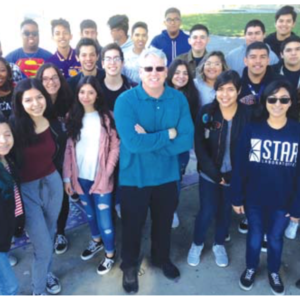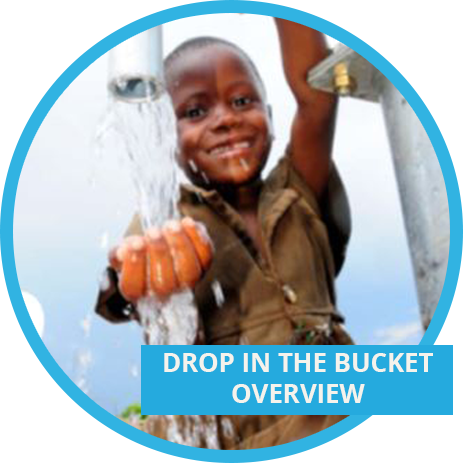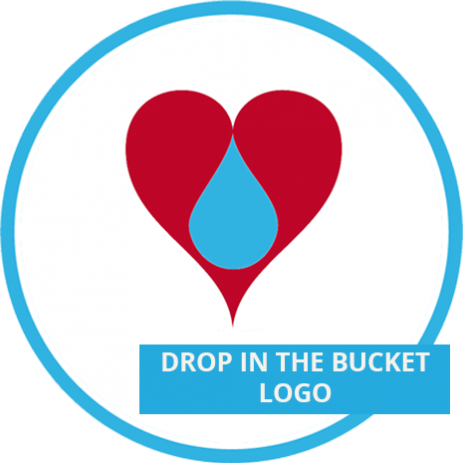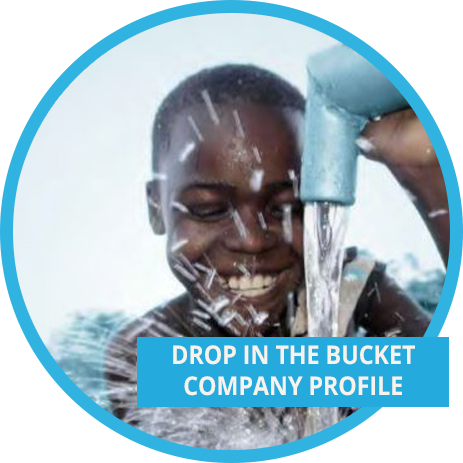RESOURCES
We’re excited you want to learn more about Drop in the Bucket. We’ve gathered our favorite photos, facts and quotes so you can help us tell the story of how
CLEAN WATER CAN CHANGE THE WORLD
WATER FACTS

663 million people in the world lack access to clean water. That is 1 in every 9 people.

Back in 2006, when Drop in the Bucket was formed, 1.1 billion people in the world lacked access to clean water. That number has been cut in almost half thanks to non-profit organizations, businesses and governmental agencies.

More people have access to a mobile phone than a toilet.

Every 1 dollar spent on better access to water and sanitation systems generates about 8 more dollars in costs avoided and productivity gained.

Every 2 minutes a child dies from a water related illness.

All of these deaths are preventable by providing access to clean water and sanitation.

Women and children spend 200 million hours every day collecting water.

By drilling wells at schools we make it possible for girls to go to school. Educated girls earn more money in the workforce, marry later and have fewer children. Poverty, starvation and malnutrition rates drop in areas where girls are educated.

If the world did nothing besides just providing access to clean water, without any other medical involvement, we could save 2 million lives per year.

Drop in the Bucket has drilled more than 400 wells across East Africa.
References
* WORLD HEALTH Organization: Progress on drinking water, sanitation and hygiene
* WORLD HEALTH Organization: UN-Water Global Analysis and Assessment of Sanitation and Drinking-Water (GLAAS) 2017 report
* UN WATER: Knowledge Highlights from the Water Global Practice 2016-2018
* WORLD BANK GROUP: WHO/UNICEF: Joint Monitoring Programme for Water Supply|| Sanitation and Hygiene (JMP)
QUOTES
“When you spend time in a place like South Sudan or Uganda, you see a lot of people dealing with life’s ups and downs. Sure, you see hardship, but you also see optimism, hope and joy. You see children walking for hours every day to get to school and people working hard to improve their lives and the lives of their families. The more time you spend in other countries the more you see that we are more similar than we are different and helping each other is just the right thing to do. We are all part of the same family.”
– John Travis, President of Drop in the Bucket
“The biggest thing I have learned is to know when to stop talking and start listening. One solution does not fit all situations. I’ve found that it’s best to work with the people, see what they want, understand their needs and start from there.”
– Stacey Travis, Director of Drop in the Bucket
“I personally have an issue with the word charity. For me it reduces people’s lives down to the issue that they are dealing with. I find it to be a word that robs people of their dignity. I’d rather talk to people about a girl who a year ago was unable to go to school, but is now top of her class. Charity is a word with too many negative connotations, we need to move the conversation on to educating, partnering, and empowering.”
– John Travis, President of Drop in the Bucket
“Poverty isn’t something you can solve by writing a check and although phrases like “Change a child’s life for just 50 cents a day” is great for marketing, you have to ask yourself: does reducing people’s lives down to pocket change hurt them or help them in the long-term?”
– John Travis, President, Drop in the Bucket
“One thing that might surprise people is that I don’t consider Drop in the Bucket a water charity. Sure, we’ve drilled 400 plus wells, but for us water is just the first step towards a better future. We’re taking the next steps in sanitation, sustainability and gender equality, with the goal being to get children into school and stay there until they graduate. ”
– John Travis, President of Drop in the Bucket
“Drop in the Bucket is, very simply, a small NGO [non-governmental organization] that drills water wells and puts in the toilets and sanitation systems in schools in Southern Sudan and Uganda. I’ve actually been to Sudan and Uganda with the Drop in the Bucket team; I really wanted to be on the ground and see it for myself, so I spent about three weeks out there and watched them do the work. It’s for real.”
– Henry Rollins
“Every person on the planet deserves access to clean water and sanitation.”
– Alyssa Milano speaking at a Drop in the Bucket fundraiser
“For the past few days, I have been in Kajo Keji, Sudan, a little north of the Sudanese-Ugandan border. I am with an organization called Drop In The Bucket. They drill for water in remote regions of these two countries, providing water and sanitation facilities. They are changing and saving lives here. To see the amazing work they have done up close is astounding. The Ugandan and Sudanese people I have met in the many villages and schools I have visited have been friendly and generous beyond belief.”
– Henry Rollins
PHOTOS
Previous Press

NGO DROP Constructs Environmentally Sustainable Toilet for Gulu School
Drop in the Bucket Constructs Environmentally Sustainable Toilet for Gulu School Kasubi Central in Gulu city has undergone a transformative upgrade in its sanitation facilities,

Charity Effort by Norwalk High Helps Out School Children in Uganda
For past the six years Dean Gray, an American government teacher at Norwalk High School, has organized a student-led program known as Giving Charity to

Drop in the Bucket new video featuring music from the Yeah Yeah Yeahs
Hear Yeah Yeah Yeahs’ New Trip-Hop ‘Under the Earth’ Remix Yeah Yeah Yeahs released a trip-hop-styled remix of 2013’s “Under the Earth” to promote water

Amoding looks beyond her blindness to enjoy life
Article from Uganda’s New Vision Newspaper In 2014, Amoding went to St Francis Primary School, Madera in Soroti but was not enrolled immediately. She mumbles

Residents harrass blind pupils, deny them water access
Sister Nasirumbi said it was unfortunate that children would miss morning lessons to search for water Local communities have been harassing and denying blind pupils

Blindfold Magazine- Interview with Drop in the Bucket Director Stacey Travis
Following the United Nations’ Millennium Summit in 2000, all 189 United Nations members and over 23 international organizations pledged to accomplish eight distinct goals by



